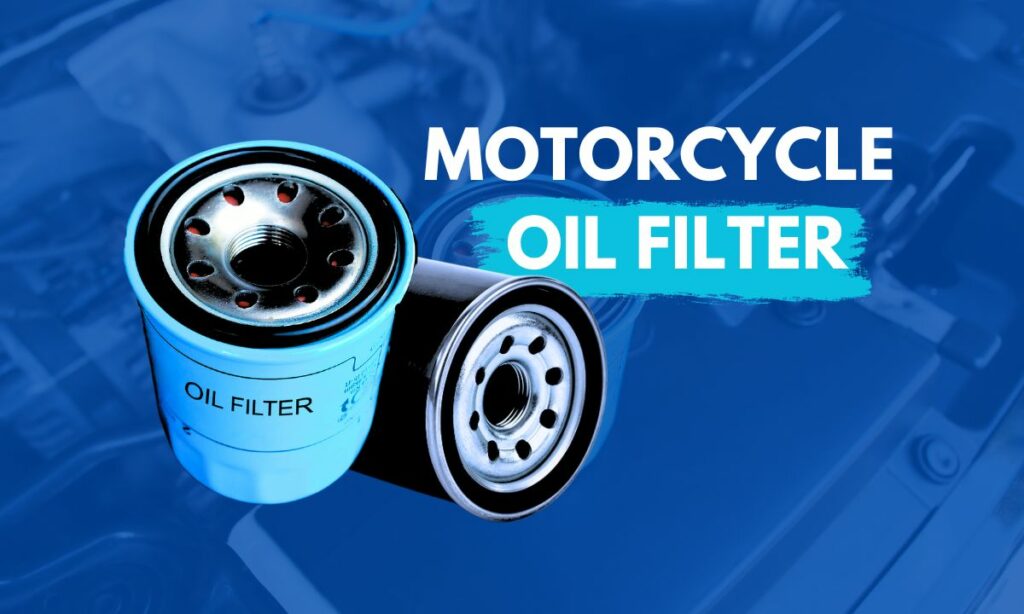Oil filters are one of the most neglected components in motorcycles.
I don’t like oil filters. You don’t like oil filters. No one likes this greasy sludgy oily component.
But oil filters are indeed important. They keep the engine oil in good condition.
So, we are going to look at:
- What an oil filter does
- Oil filters in motorcycles
- Parts and working principle
- Changing frequency
- Leaking oil filter, clogged oil filter, stuck oil filter
- Oil filter maintenance
All these topics in detail.
So, let’s dig in.
Oil filter – what is it and what does it do
An oil filter, as the name suggests, is designed to filter out contaminants from the oil.
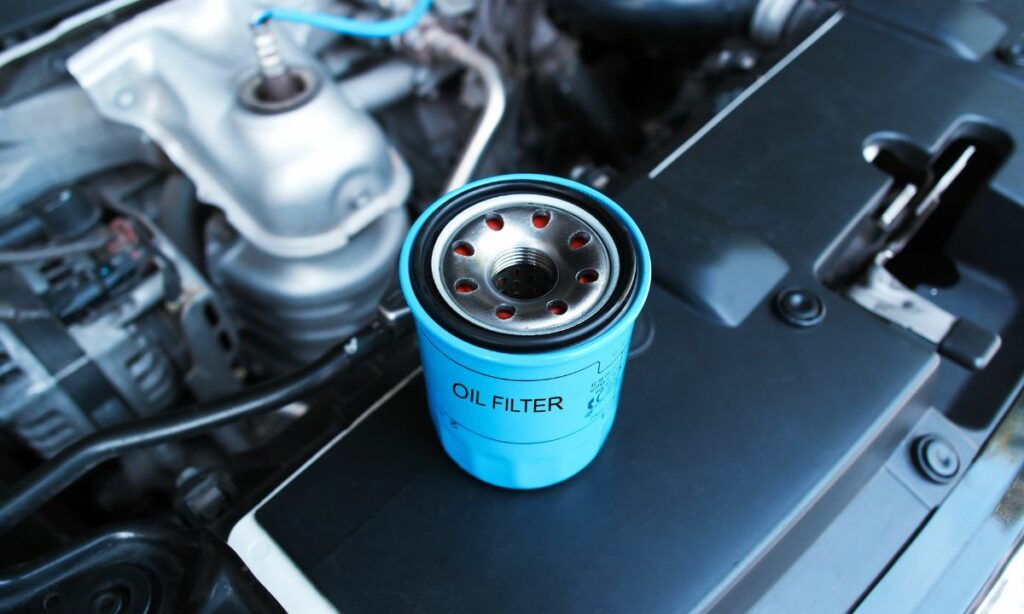
The oil filter is significant for engines since engine components need oil for lubrication and cooling.
The oil filter will weed out any dirt, dust, and contaminants from the oil before the oil enters the engine.
So, invariably, all vehicles and locomotives which have engines in them contain oil filters.
Also, an oil filter is intended to eliminate toxins from not just engine oil, but also from all other kinds of oil including – transmission oil, greasing-up oil, as well as water-driven oil – depending on the machine and the oil used.
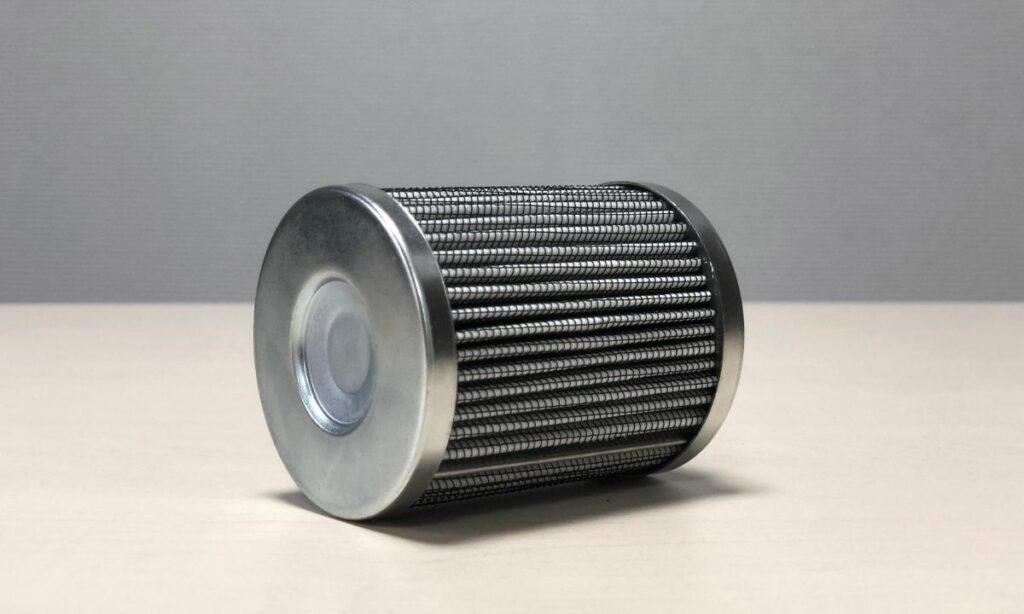
As a result:
Oil filters are almost all vehicles and locomotives that have engines.
In addition, having an engine is not a necessity to have an oil filter in a machine.
Any hardware that utilizes power through pressure typically has an oil filter to filter and dispose of any impurities in the oil involved.
Do motorcycles have oil filters?
All motorcycles have oil filters installed to clean the engine oil from contaminants.
Irrespective of the manufacturer, country, and model – all motorcycles do have oil filters installed in them.
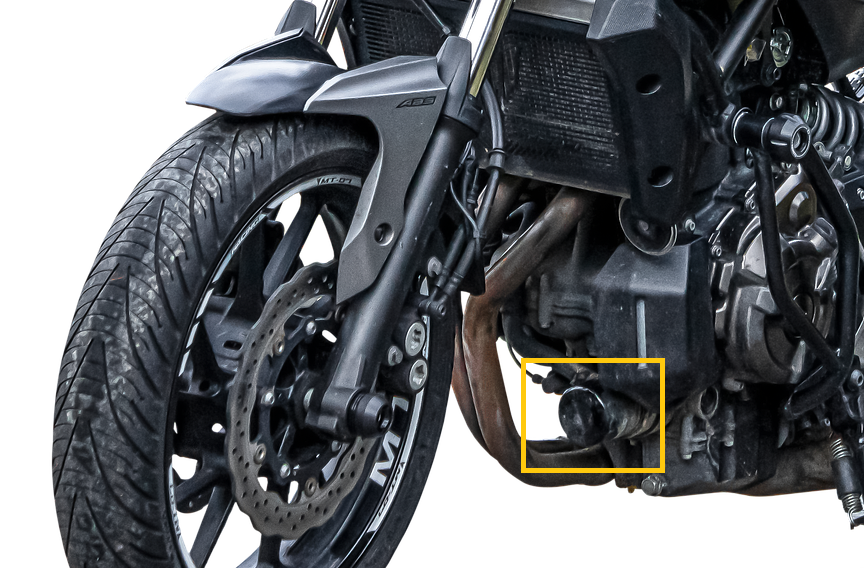
In fact, it’s not just all motorcycles, but all cars have oil filters.
Wait, this just does not end here.
All vehicles and locomotives that have engines will have oil filters fitted somewhere to filter oil from contaminants.
To give you a few examples, an oil filter is used in engine vehicles (both on and off terrain), fuelled airplanes, rail line trains, ships and boats, and static engines like generators and siphons.
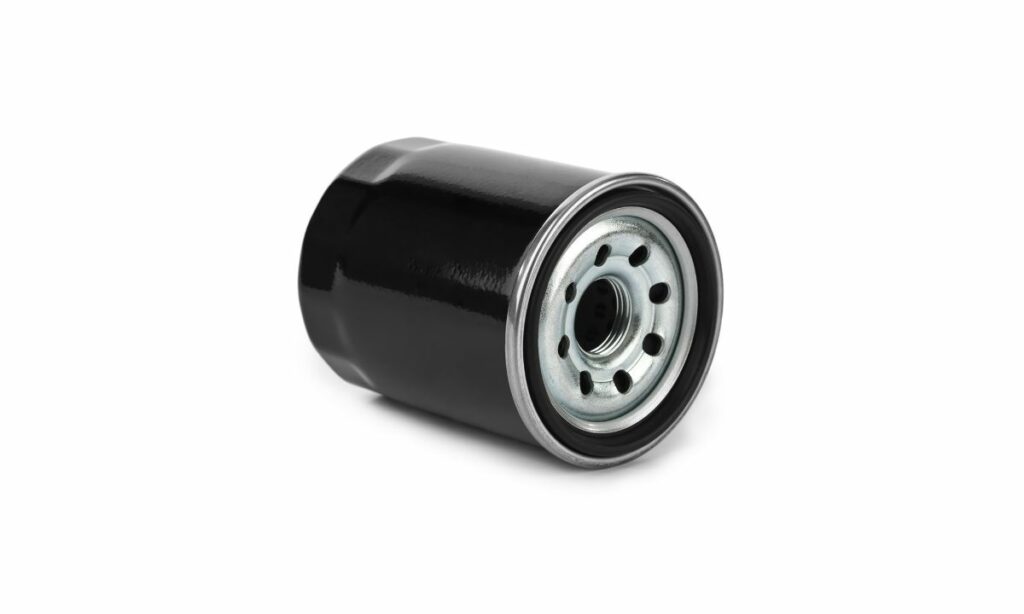
Heck, the oil business itself requires oil filters for oil creation, oil siphoning, and oil reusing.
Where is the oil filter located on a motorcycle?
The motorcycle oil filter is most commonly located in one of these two locations:
1. Either, alongside the crankcase within the casing– right below the engine block
2. Or, directly fitted without casing at the bottom part of the motorcycle – right below the crankcase.
In old motorcycles, the oil filter is usually located within the casing.
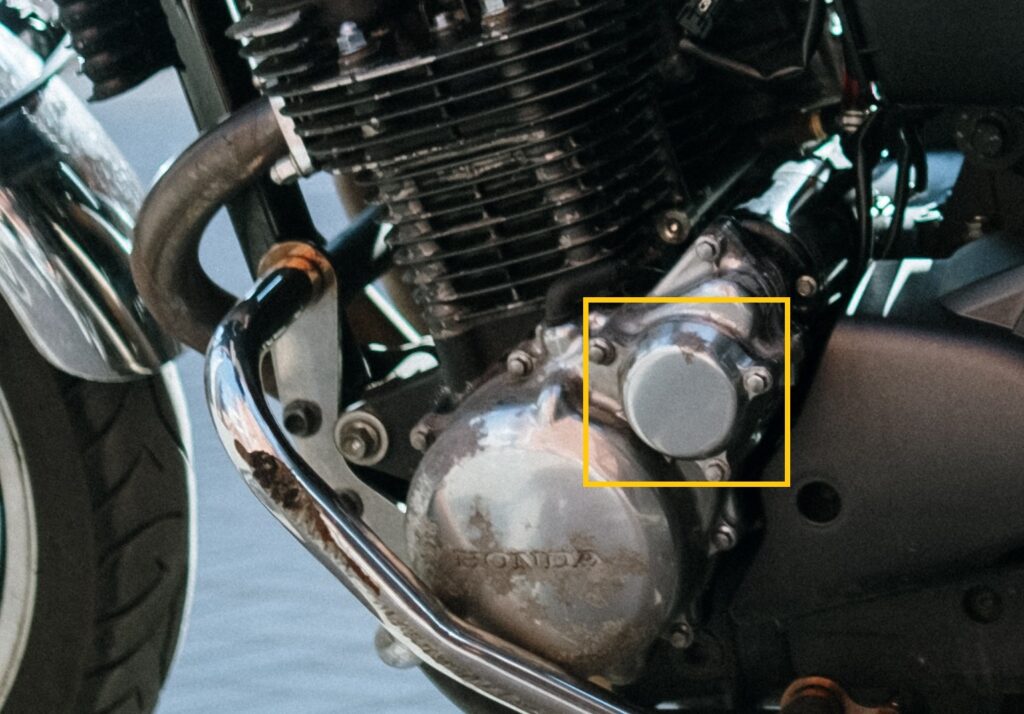
As you can see, the circular extrusion alongside the crankcase is where the oil filter is located.
In superbikes and high-performance motorcycles, oil filters are directly fitted without casing below the crankcase at the bottom part of the motorcycle.
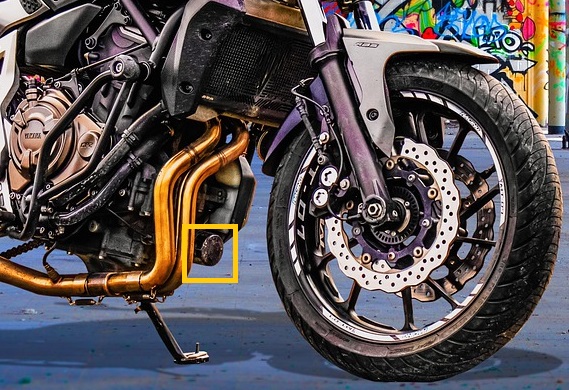
You will be able to directly see the oil filter by looking at the downside of your bike.
These two locations are the most common locations of the oil filter in a motorcycle.
Role of oil filter in a motorcycle
We know what an oil filter does in general.
But what are its functions specifically in a motorcycle?
Motorcycles need engine oil to lubricate and cool down the engine components so that the engine keeps running smoothly and generates power for the motorcycle.
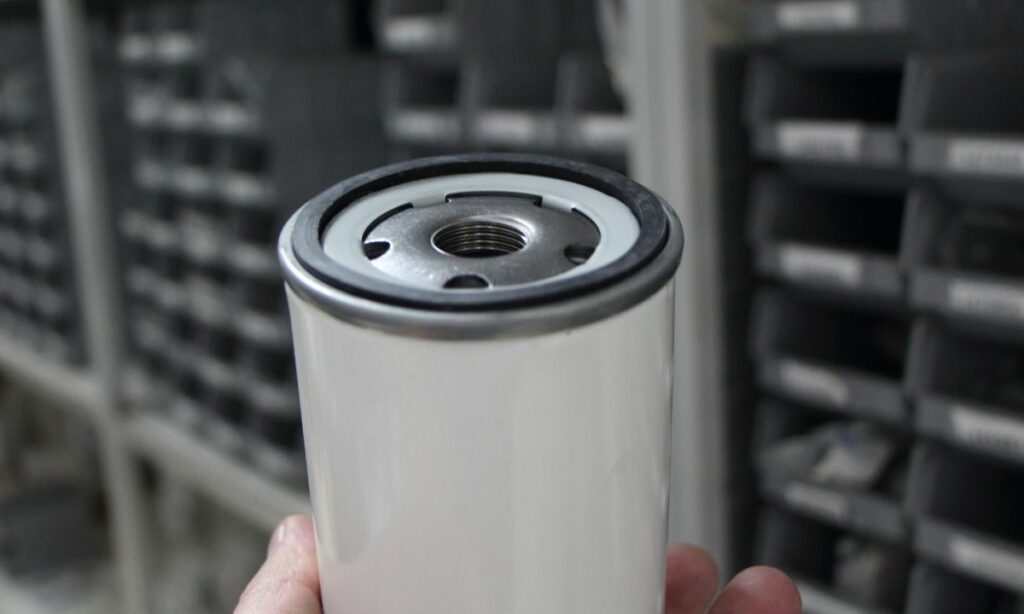
And this is where the oil filter comes in.
First, the oil filter removes dirt, dust, and any other soil particles from the engine oil.
This prevents deposit formation by these oil contaminants in the nooks and crannies of the engine components.
Second, the oil filter cleans metal contaminants as well.
If left unchecked, the metal contaminants come in contact with the engine components and increase the metal-to-metal friction – thus, resulting in rapid engine wear.
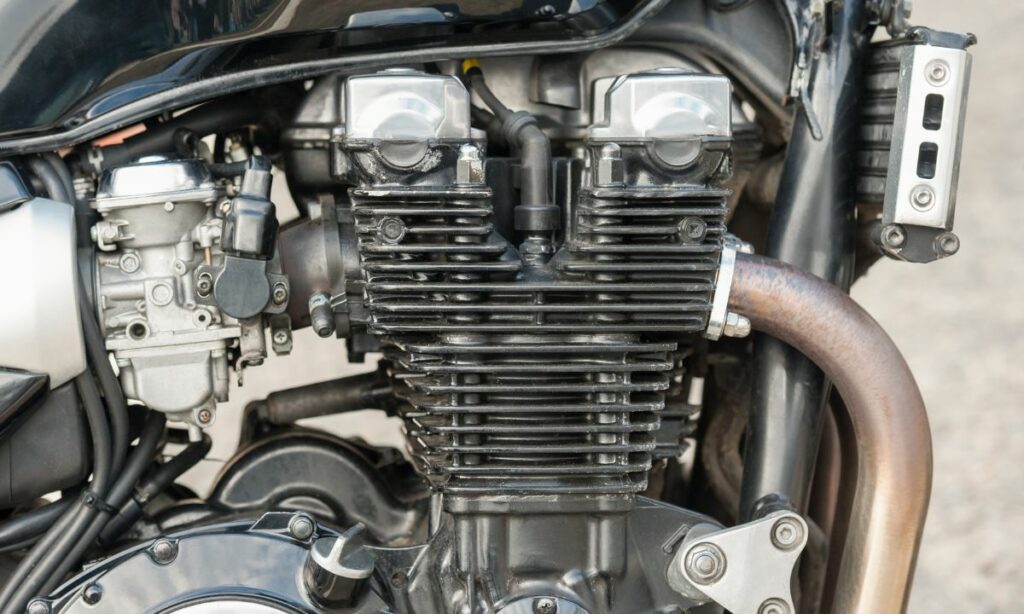
Third, both the above factors translate to a higher endurance and durability for the engine as well as its components.
The end result will be higher engine performance, higher gas mileage, and a better life expectancy for the engine.
The main parts of an oil filter
Now, let’s discuss each part of an oil filter and what its functions are.
External casing
The cylindrical metal casing, also called the housing, is used to protect the oil filter from any mechanical damage.
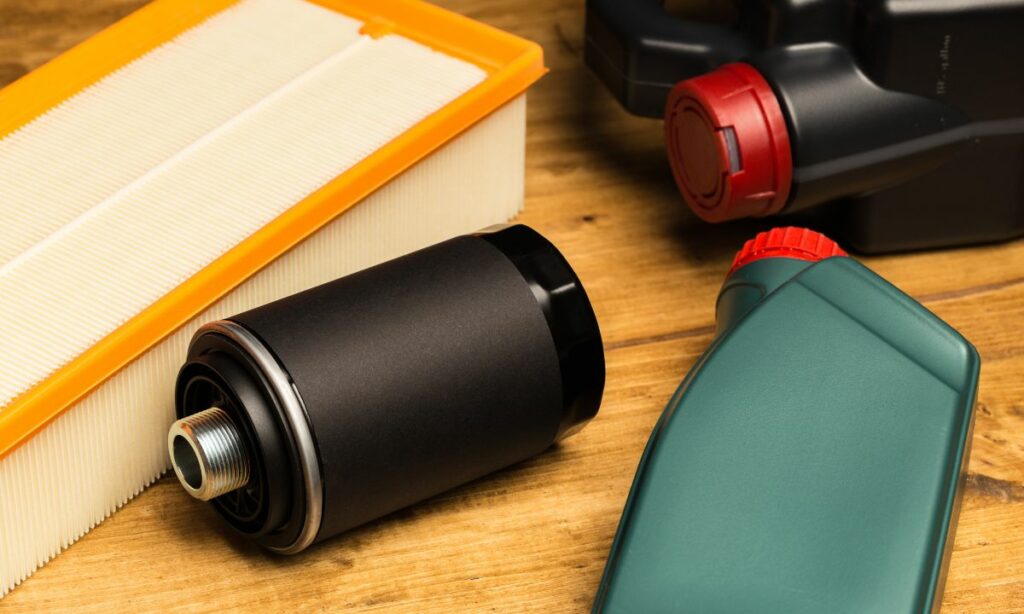
The casing is usually powder-coated.
So, the outer surface is resistant to corrosion.
When you see the oil filter, you are mostly looking at the casing of the oil filter.
Top cover
The top cover is essentially the top portion of the oil filter which the casing does not cover.
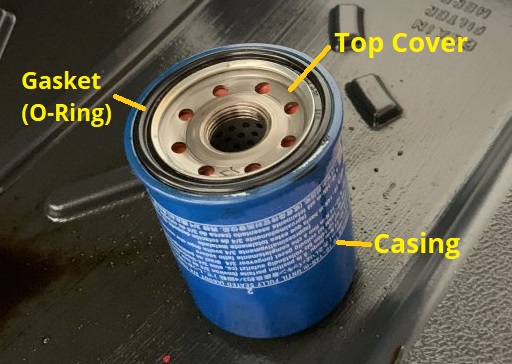
The top cover consists of two important subcomponents.
First, it has a precisely made high-strength thread.
The thread is essential to fit the oil filter in the motorcycle. You will be using this thread to screw and tighten the oil filter to install into your motorcycle.
Second, there are oil holes on the surface of the top cover.
Through these oil holes, the engine oil enters the oil filter. And then gets filtered from dirt, dust, metal particles, and other contaminants.
O-Ring (Gasket)
The O-Ring or the gasket is basically rubber or an elastic material used to seal the oil filter and ensure that the filter is fitted tight.
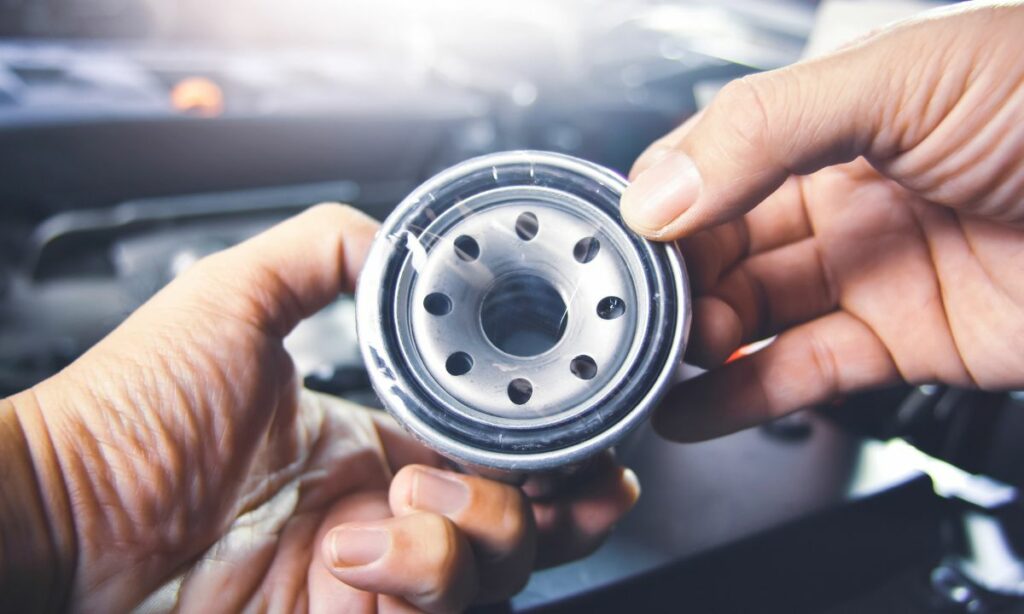
The elastic material used should be resistant to thermal expansion and withstand mechanical loads.
Anti-drainback valve
As the oil flows into the oil filter through the oil holes on the top cover, the anti-drainback valve – placed right beneath the top cover – ensures that the oil does not flow back through the oil holes.
The anti-drainback valve also ensures there is sufficient oil and no priming issues in the filter during the engine startup.
The material used for this valve is usually a flexible material with a specially designed structure to suit the oil filter needs.
Paper pleats
Paper pleats are the component that actually filters the contaminants from the engine oil.
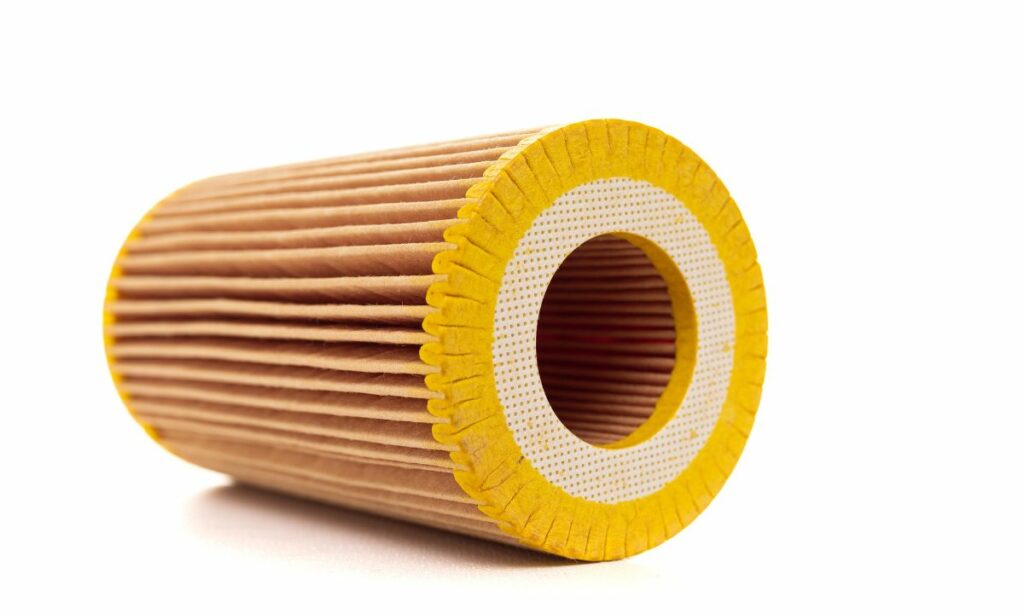
As the oil flows through these paper pleats – dirt, dust, metal particles, and many other contaminants are absorbed by these plates. Thus, allowing a cleaner oil to flow through forward.
Paper pleats are made of high-quality materials designed to absorb various types of contaminants. They are also resistant to any aggressive chemicals present in the oil.
Center tube
The Center tube is around where the paper pleats are arranged in a symmetrical fashion. The tube is spiral in shape with pores along its surface to allow the oil flow.
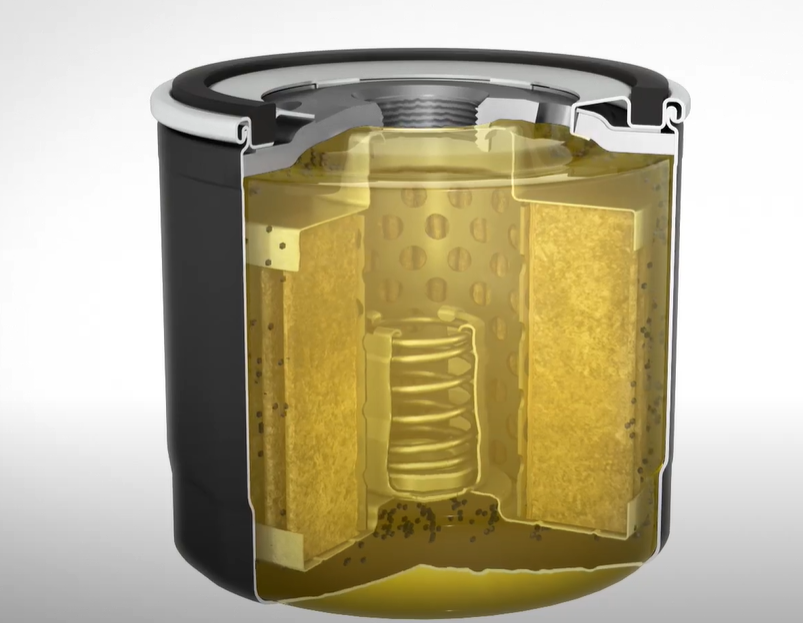
As the oil flows through the paper pleats and gets filtered, the filtered oil flows into the center tube through the pores on its surface.
Once the filtered oil enters the tube, it then flows along the tube and exits out the filter as clean oil.
In short, the center tube has two functions – one, it acts as the support for paper pleats; and two, it provides a passage for the filtered oil to flow out of the oil filter.
Bypass valve
The bypass valve is placed right below the center tube.
The bypass valve ensures that the oil flows to the crankcase even when the oil filter is clogged.
This valve, also rightly called the pressure relief valve, allows the free flow of the oil whenever the oil flow gets restricted otherwise in the filter.
The oil flow restriction can arise whenever the filter is clogged or the oil is too thick.
Oil filter working principle
Here is how the oil filter works:
First, the oil filter receives the unfiltered oil through the oil holes present on the top cover.
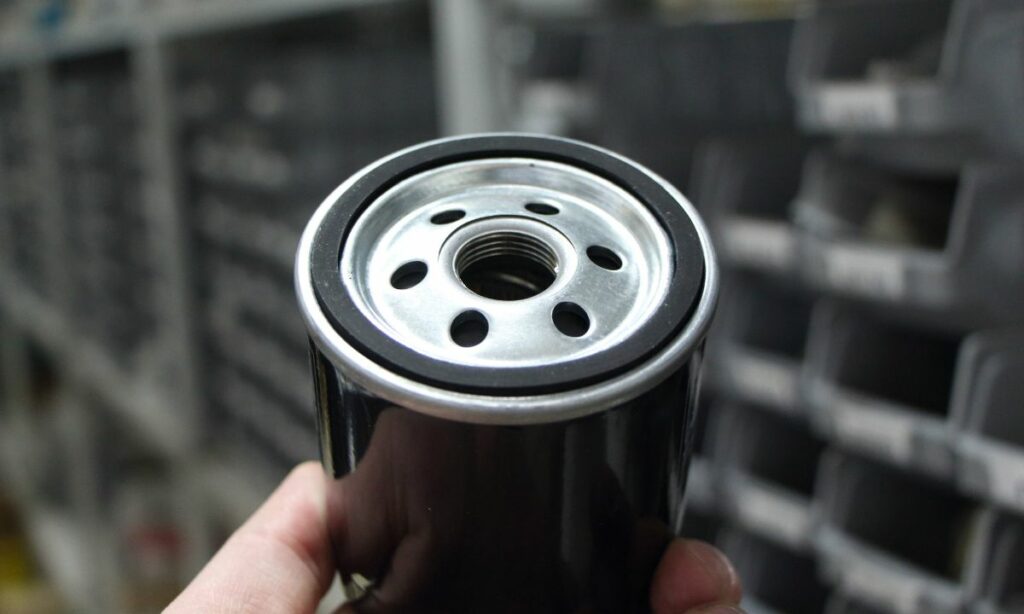
Second, the oil is then guided to flow through the paper pleats.
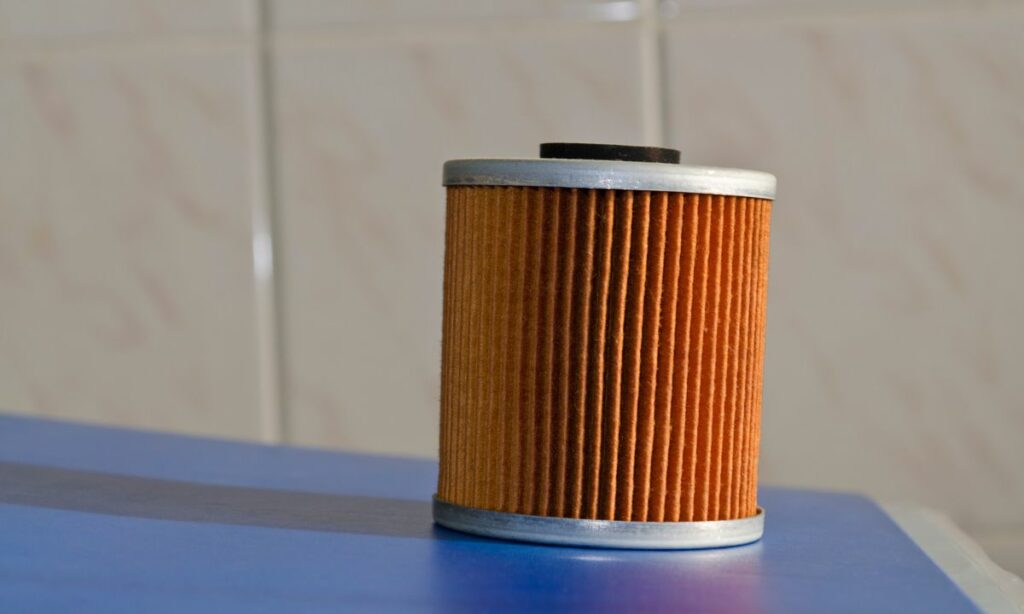
This is where filtering happens.
The paper pleats are made of a special material designed to absorb oil contaminants – be it dirt, dust, metal particles, and many other types of contaminants.
Third, the filtered oil from the paper pleats then flows into the center tube.
The Center tube provides the passage for the now clean oil to move out of the oil filter.
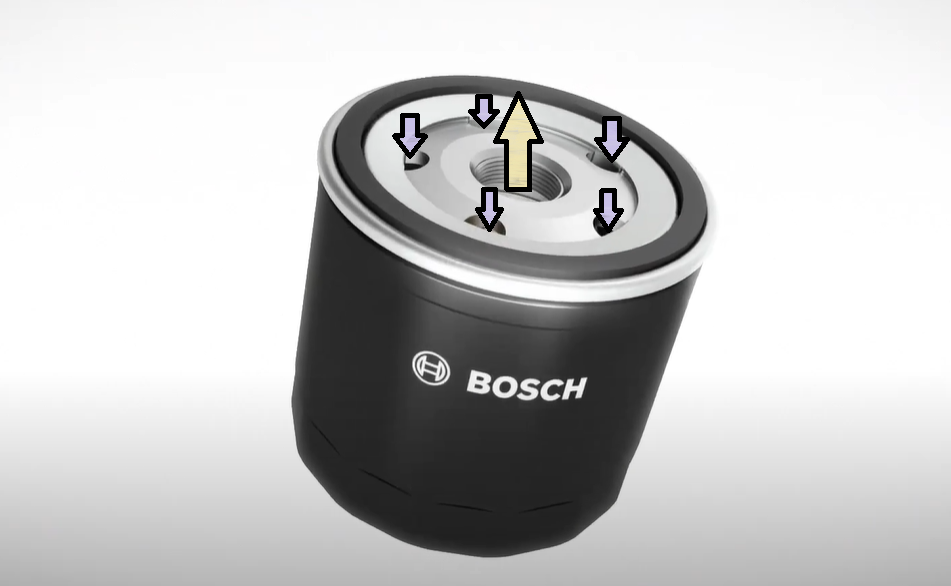
As the cleaned oil moves out of the oil filter, it makes way for the new unfiltered oil to enter into the filter. And the cycle keeps on.
Lastly, there is a bypass valve provided as a fallback mechanism in case the paper pleats (the filtering component) get clogged.
In such a case, the bypass valve guides the unfiltered oil directly into the center tube so that it can move out of the filter.
This bypass mechanism ensures that the oil keeps on flowing, although not filtered.
Here is a cool animation video showing the oil filter’s working mechanism.
That’s how the oil flows and gets filtered in an oil filter.
When to change the oil filter in a motorcycle
The oil filter in a motorcycle should be changed every 6000 miles (10,000 kilometers) of distance traveled.
Motorcycle oil filters usually don’t last more than 10,000 miles and will be functioning far poorer after around 6,000 miles.
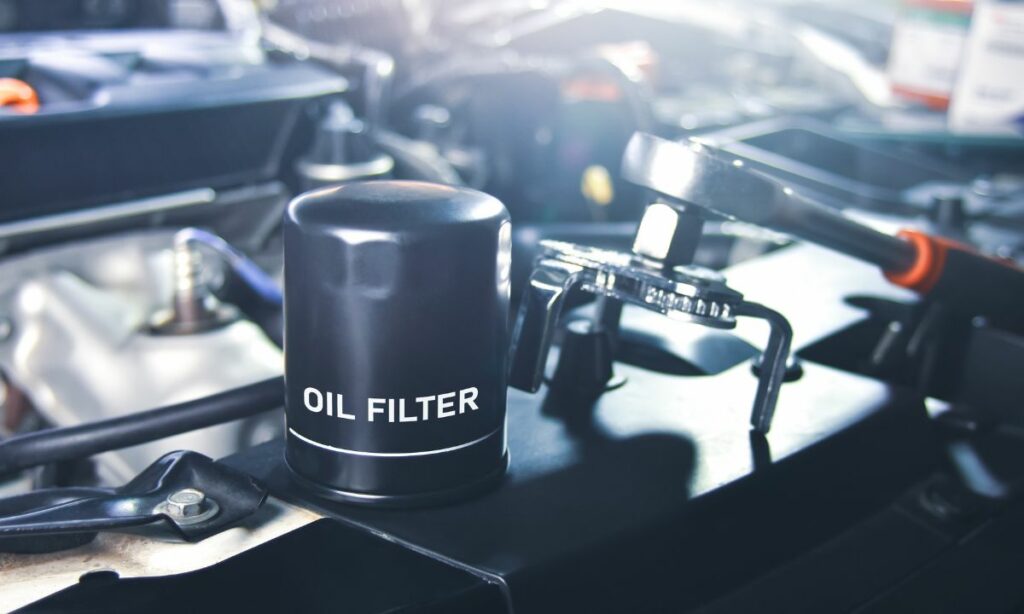
For good maintenance, it is best to replace the motorcycle oil filter at least every 6000 miles (10,000 kilometers) traveled.
As for how to change, here is our step-by-step guide to change the oil filter in your motorcycle.
Change the oil while changing the oil filter
Whenever you are changing the oil filter, change the oil as well.
You don’t want the new oil filter to deal with old oil full of sludge and contaminants.
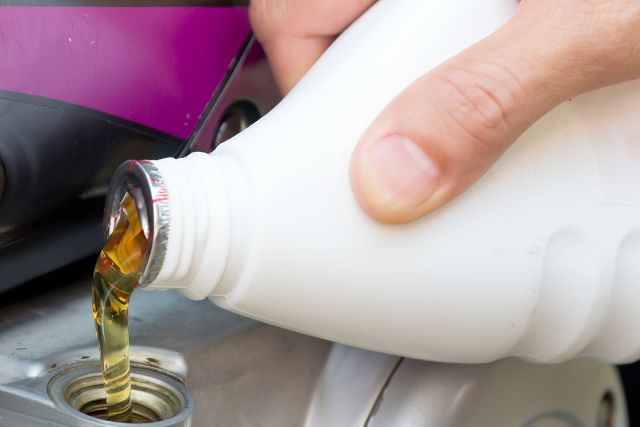
The new oil helps in better efficiency and longevity of the oil filter.
So don’t top up the oil.
Change the oil when you are changing the oil filter.
It’s a good practice.
Do you have to change the oil filter for every oil change?
There is no need to change the oil filter every time you change the oil.
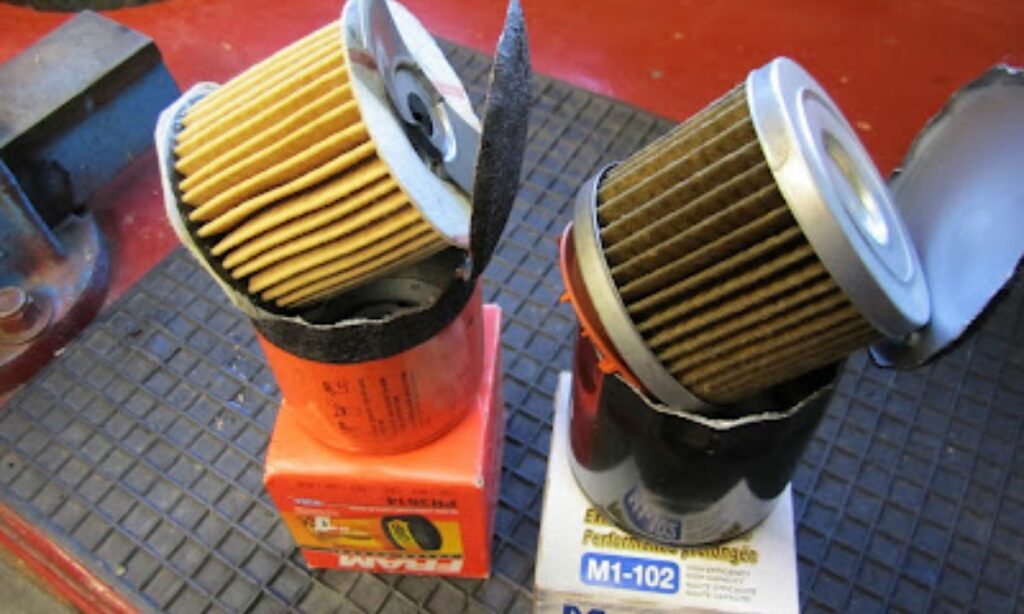
Even though bike user manuals say otherwise, I usually change the oil filter every alternate time when I am changing the engine oil.
So it’s okay.
You can change the oil without changing the oil filter.
But for the other way round, it’s a best practice to change the oil while changing the filter.
Oil filter leaking
Oil filter leak is one of the most common problems associated with motorcycle oil filters.
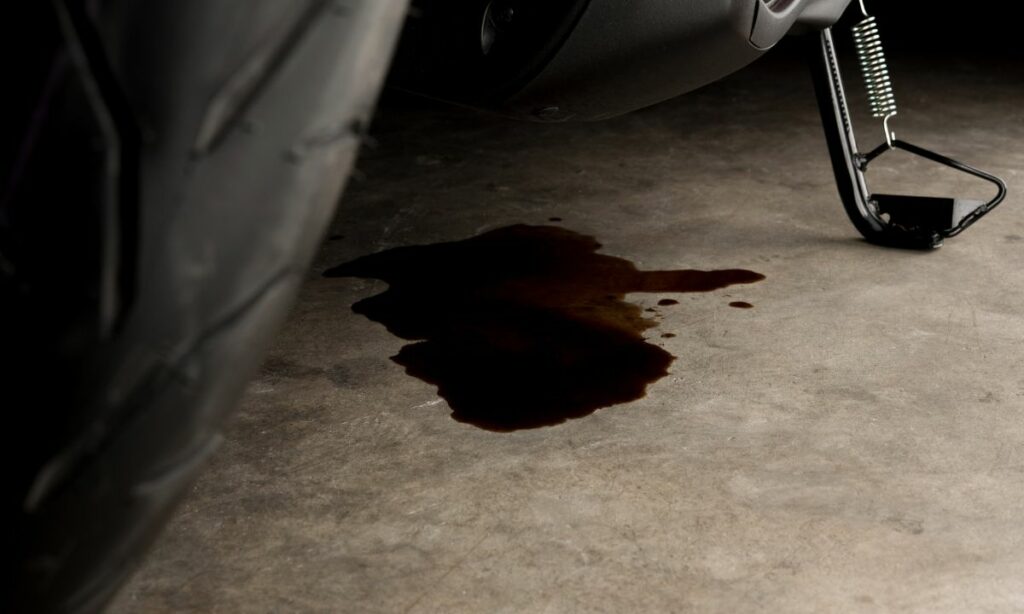
Damaged gasket, double gaskets, overtightening, and thread damage – are the main causes of oil filter leaking.
Other uncommon reasons for leaking include fitting a wrong oil filter and outer casing damages.
How to fix
If the oil spilling is because of the gasket leak, you can check the gasket and replace it. (Take one out if it’s a double gasket).
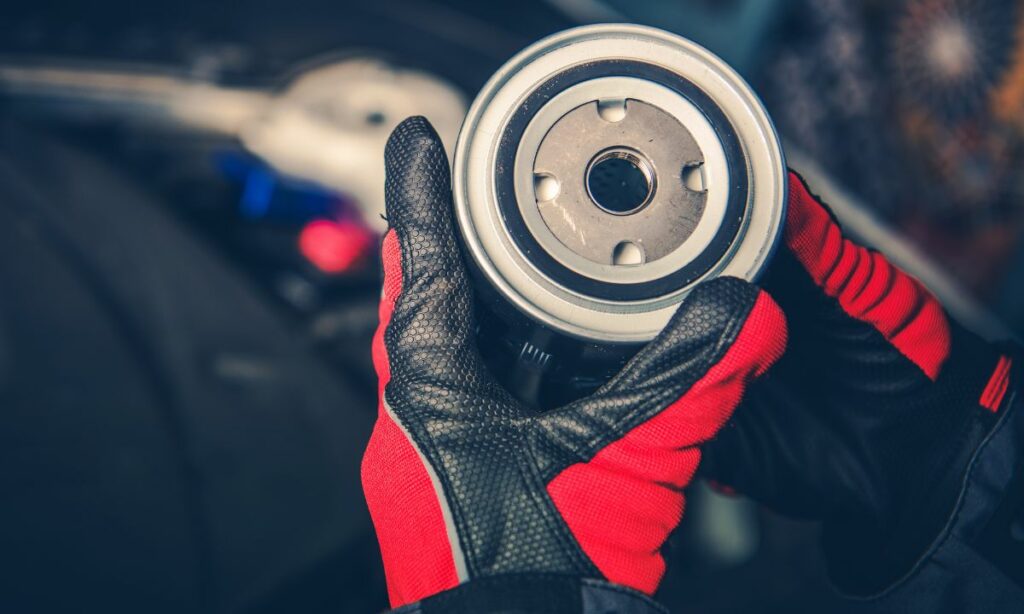
But most likely, the only fix is to replace the oil filter with a new one.
Check the root cause of the oil filter leak to ensure the leak doesn’t happen again.
For more info, here is our explainer on oil filter leakage.
Clogged oil filter
As the oil filter gets old, it starts to clog up.
That’s why you should the oil filter on your motorcycle regularly.
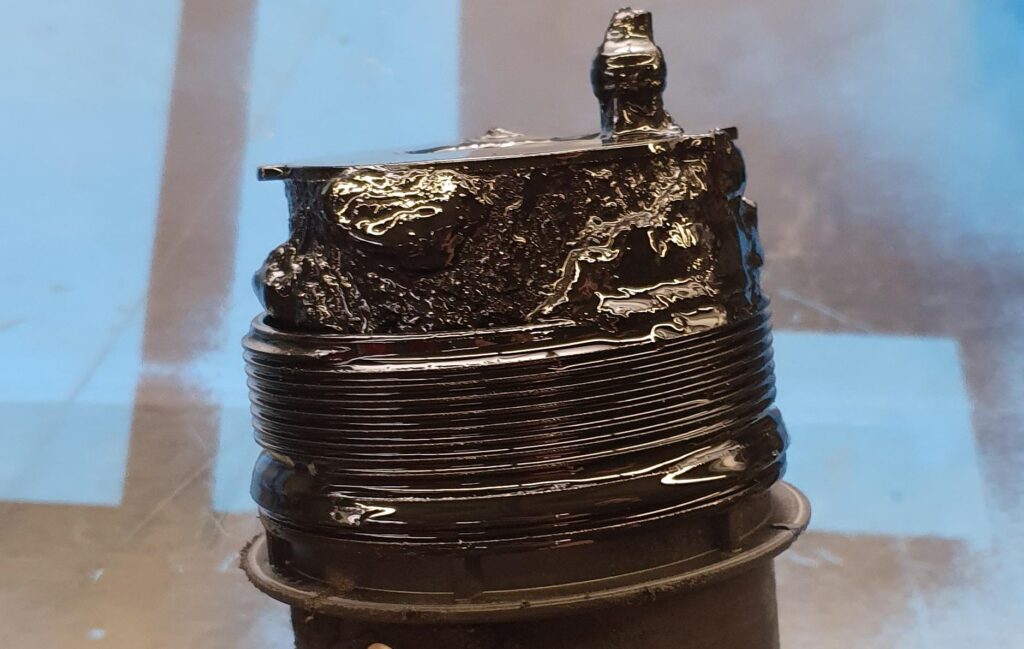
A clogged oil filter won’t filter the oil. The engine receives an unfiltered oil full of contaminants.
This might damage the engine.
So, change the oil filter regularly.
Symptoms of a clogged oil filter
Here are the symptoms of a clogged oil filter:
- Oil light or engine light is ON
- Oil is dirty and dark in color
- Gray smoke is coming from the exhaust
- Engine overheating, high vibrations, and noise
- Oil filter is leaking oil
For more details, here is our detailed guide on clogged oil filters.
How to fix
If the oil filter is clogged up, the only fix is to replace the oil filter with a new one.
There is no other way around.
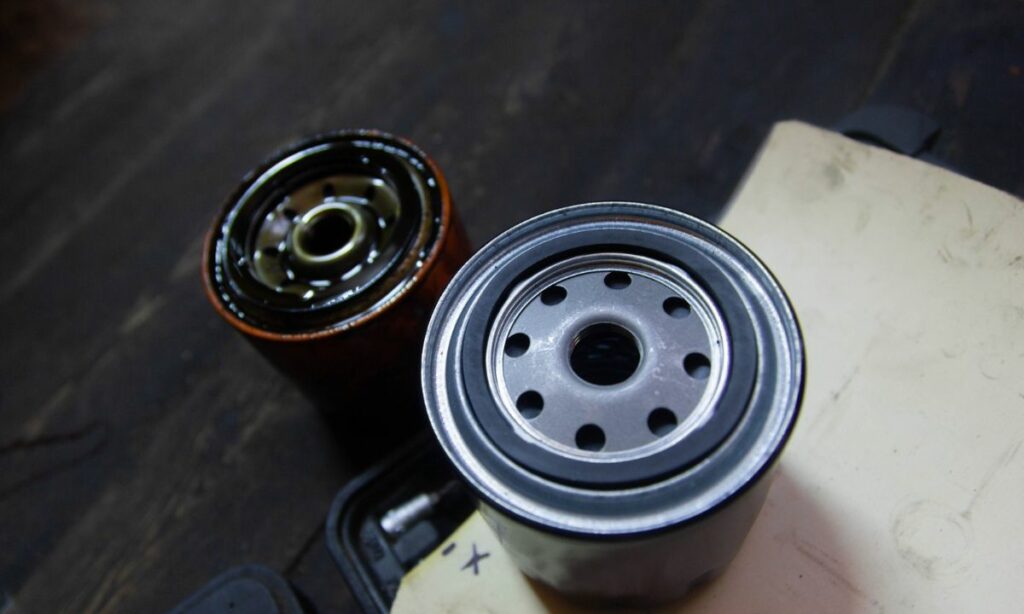
Sure, you can try to clean the filter.
But I would say it’s futile. The paper pleats will be too blackened to clean up.
Neither is cleaning worth the effort.
So buy a new oil filter and fit it to your motorcycle.
Stuck oil filter
Sometimes the oil filter gets stuck.
This might be due to overtightening or wrong fitting. Or other times, the threads might have been damaged.
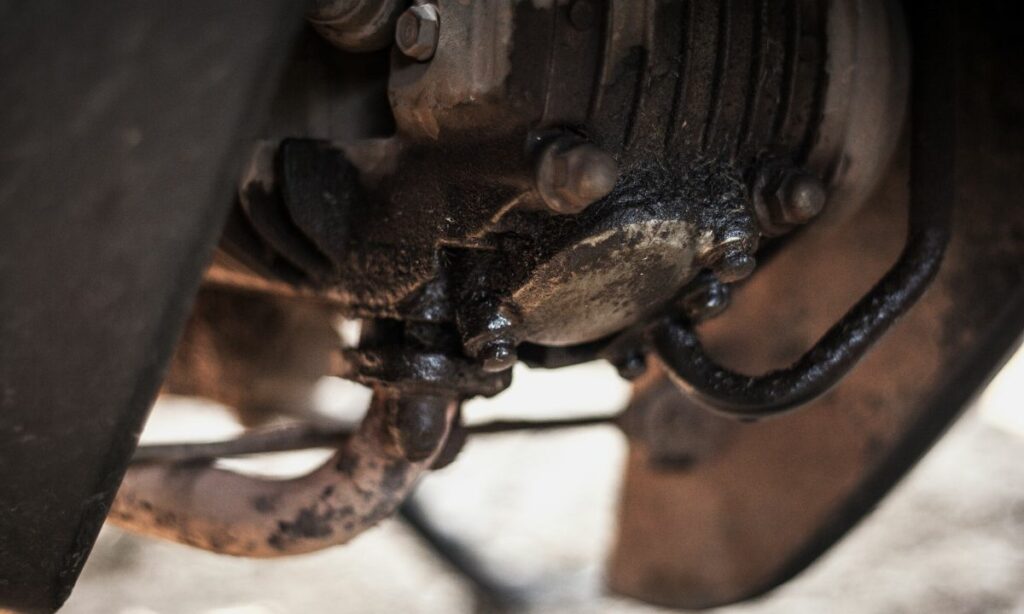
In any case, the oil filter is stuck. And removing it can get difficult.
So, how to remove the stuck oil filter?
If you are unable to remove the oil filter by hand, you can use one of these methods to remove a stuck oil filter:
1. Use a strap wrench
Slot the strap wrench over the filter and move the handle to unscrew.
Strap wrenches are readily available and are easy to use. But the handle can get in the way of the other components while unscrewing.
2. Oil filter cap
Place the oil filter cap on the bottom portion of the filter and push it to fit into the filter.
Next, use a socket wrench or a 1/2-inch breaker bar and unscrew the oil filter by rotating the wrench.
Filter caps are helpful when the filter is located in tricky spots. The downside is these caps are brand and filter specific.
3. Lubricant spray
Spray the lubricant (WD40 works) and wait for 15-20 mins.
If the screw was old and rusty, then lubricant should have made the unscrewing easier. You will easily remove the oil filter now.
Lubricant spray doesn’t work in all situations though.
4. Vice grip
Vice grips are another version of pliers that can be used to lock an object into a position. Hence they are also called locking pliers or mole wrench.
Adjust the vice grip and position it on the oil filter. Slowly rotate the vice grip handle in the unscrewing direction to remove the oil filter.
Vice grips are effective. But they are difficult to handle.
5. Screwdriver and hammer
Last resort. Take a good hammer and the biggest screwdriver you have got.
Place the screwdriver on the outer surface of the oil filter. Then bash the screwdriver with the hammer until the screwdriver has sufficiently penetrated the oil filter.
Then move the screwdriver in the unscrewing direction to remove the filter.
This method damages the oil filter, and other parts if you are not careful. Use it as a last resort.
Oil filter maintenance
Here are a few maintenance tips to keep your motorcycle oil filter in good condition:
- Change the oil filter regularly: Make sure you change your motorcycle oil filter on a regular basis, at least for every 6000 miles of distance traveled.
- Avoid double gaskets: When replacing the filter, the oil gasket of the old oil filter sticks with the vehicle rather than coming off. Ensure there are no double gaskets while fitting.
- Change the oil while replacing the filter: Don’t top up the oil when changing the oil filter. A new oil filter deserves new oil.
- Use high-quality engine oil: The efficiency of the oil filter reduces rapidly as the oil quality degrades. Use good quality oil in your motorcycle.
- Use the right filter: Use the same OEM oil filter models while changing. Or at least the filter that is very similar to the one that the manufacturer recommends.
Can you run a motorcycle without an oil filter?
Running a motorcycle without an oil filter is NOT recommended.
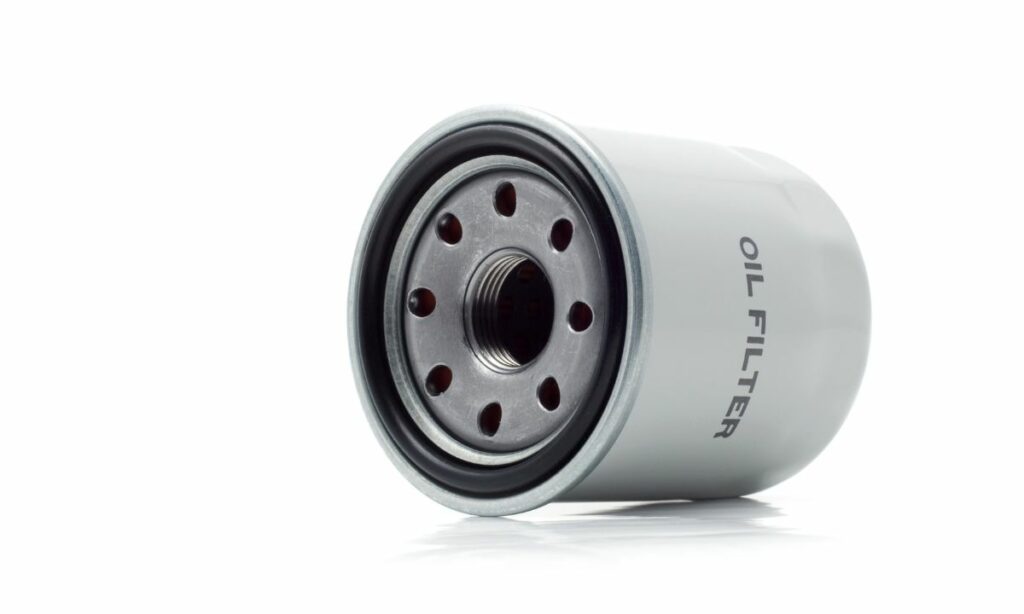
The oil starts forming sludge and deposits on the nooks and crannies of the engine components.
And the engine will see increased wear and tear on its components.
Over time, the engine performance and lifespan get reduced if you run the motorcycle without an oil filter.
FAQs
A: Yes. All dirt bikes have oil filters in them. The oil filter, again, filters the oil so that the engine can receive filtered oil.
A: An oil filter does NOT increase engine horsepower. However, for good engine performance, a good and well-maintained oil filter is necessary. So, keep changing that oil filter at regular intervals.
A: The motorcycle oil filter typically costs around $15 to $20. But if you are going to a service shop, there will be additional labor charges, costing a total of around $60.
Before you go…
Here are a few more oil filter related posts for you:
